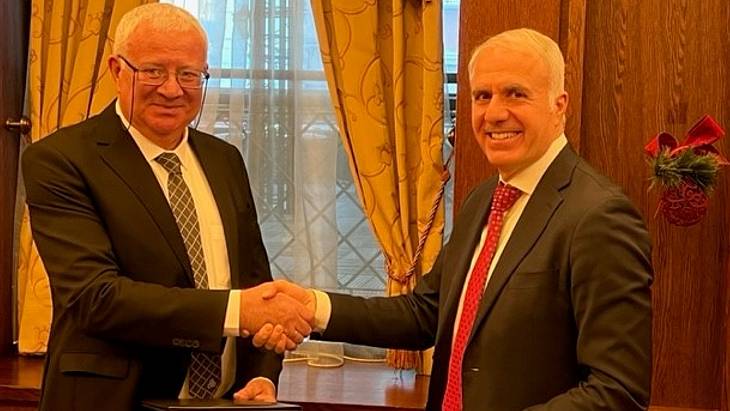"We appreciate counting on Westinghouse as a business partner for this agreement, which is in line with our long-term goals of nuclear fuel diversification and security of supply," said Georgi Kirkov, executive director of Kozloduy.
Tarik Choho, Westinghouse President of Nuclear Fuel, said: "We are proud to support Bulgaria on its path to ensure diversification and energy security. This long-term partnership will also reinforce the plant's operational efficiency and high standards of safety."
Westinghouse has been providing fuel for Russian VVER nuclear plants in Ukraine over recent years as the country diversified its fuel supply even before the current war. The fuel will be supplied from Westinghouse's fabrication site in Västerås, Sweden, with licensing expected over the next year, and supply beginning in 2024, according to a Bulgarian National Television report.
Bulgaria's Energy Minister Rossen Hristov said: "Today is a significant day for the Bulgarian nuclear energy industry. We are taking a major step forward in securing and diversifying the supply of fresh nuclear fuel for unit 5 of the nuclear power plant."
The country's National Assembly voted in November for an acceleration of the process of securing an alternative to Russia as supplier of nuclear fuel.
The minister said "we have successfully completed the set tasks" adding that they had also fulfilled a commitment to the European Union to diversify fuel supply and had done so under "completely favourable conditions and in compliance with all nuclear safety requirements".
He said Westinghouse was committed to "the provision of the enriched uranium material, assembly of the cartridges and their delivery to the site" which is similar to the current model of operation at the plant.
Westinghouse will also provide free implementation of their internal reactor control system, Hristov said. In order to ensure nuclear safety, this system will be implemented from 2023 and will work in parallel with the current system to enable staff to be trained and technology to be synchronised. "We made a lot of efforts to ensure the smooth and safe implementation of the new nuclear fuel without interrupting the work process of the plant," he said.
The Bulgarian Ministry of Energy said that European diversification requirements were intended to ensure the security of supply of nuclear materials and services in the nuclear fuel cycle for all organisations operating nuclear power plants within the European Union.
Hristov also announced the upcoming signing of a similar contract with the French company Framatome for unit 6, which he said would complete the procedure for diversifying the supply of fresh nuclear fuel to the Bulgarian nuclear power plant from two independent sources.
The Kozloduy nuclear power plant is in the northwest of Bulgaria on the Danube River and provides about 34% of the country's electricity. It features two Russian-designed VVER-1000 units currently in operation, which have both been through refurbishment and life extension programmes to enable extension of operation from 30 to 60 years.















